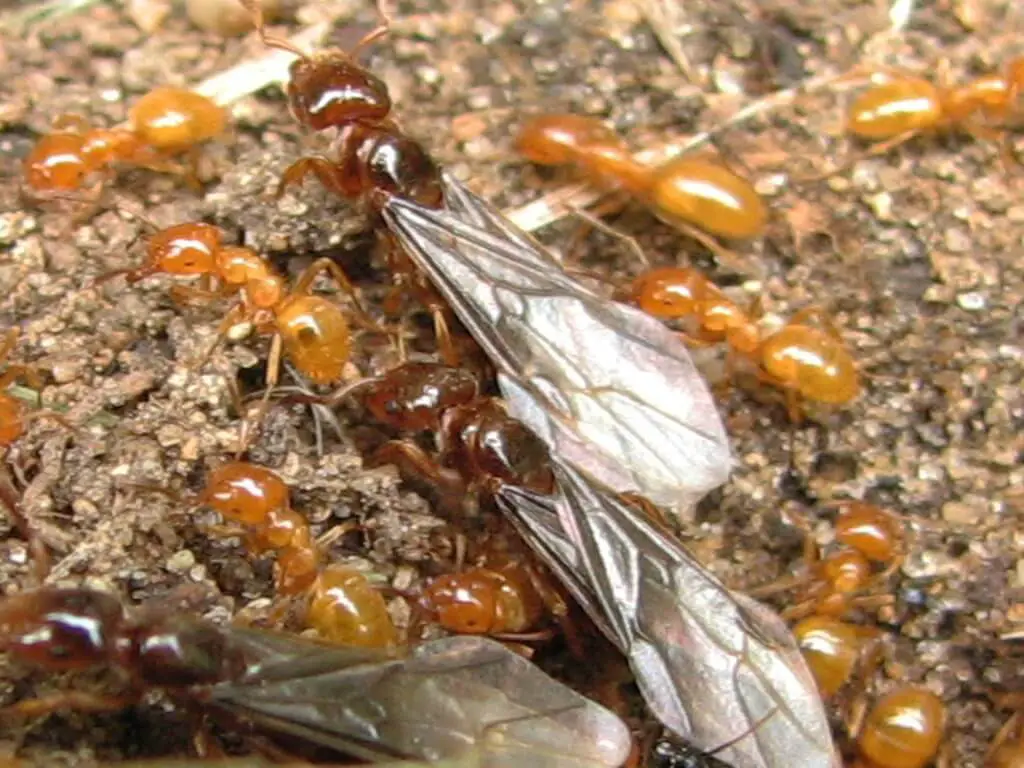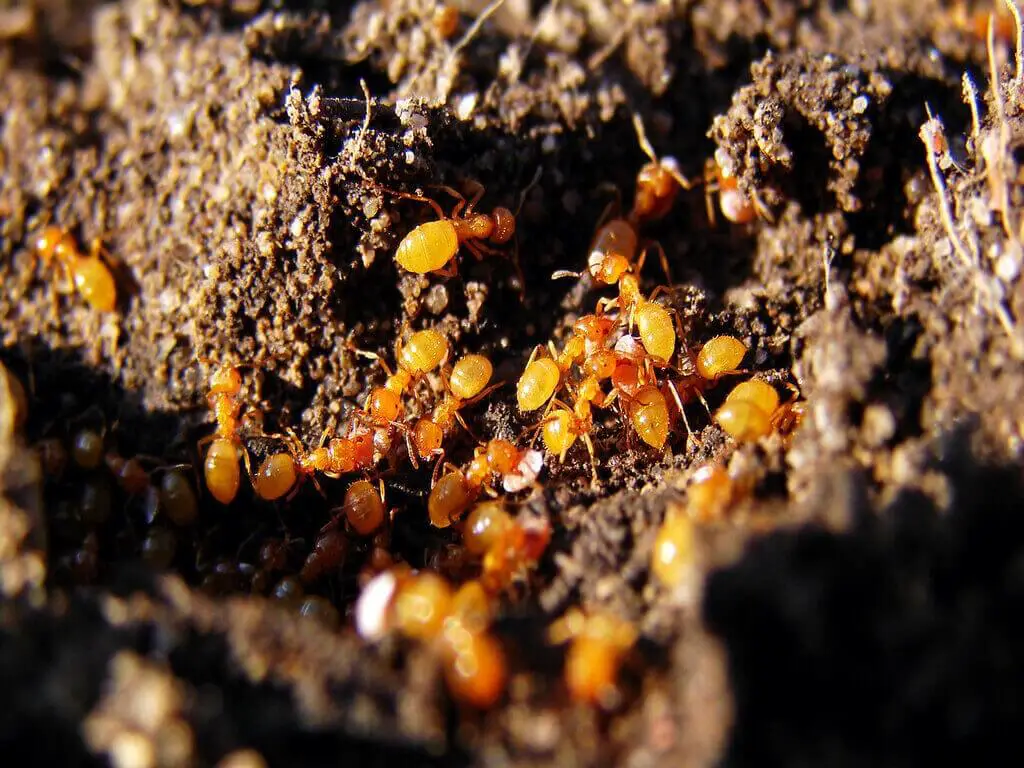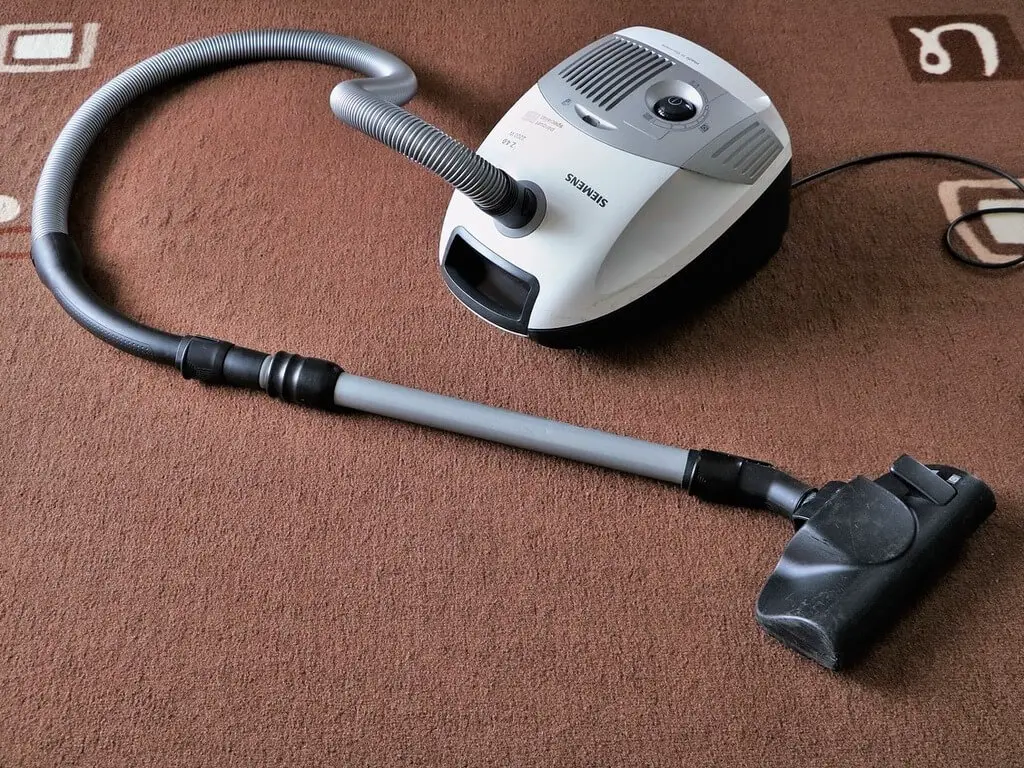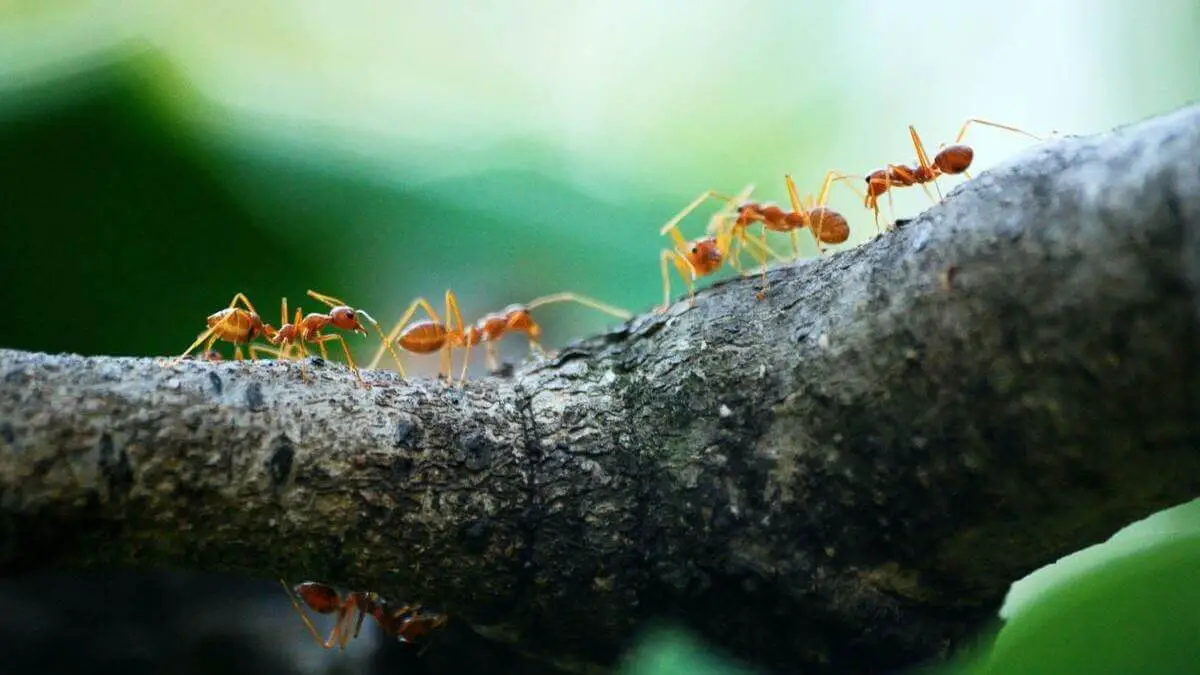All about Citronella Ants
Citronella Ants are subterranean insects. They do not have stingers. Therefore, they cannot strike or bite causing harm to humans. When threatened, they emit citronella odor (lemon verbena). This smell is more apparent when you crush them. These ants get the name from this smell.
This article focuses on Citronella Ants, their types, behavior and treatment.
Typically, these ants feed on the excretory residues (Honeydew) of Aphids or mealy bugs found on plants. They do not disturb humans.
Table of Contents
Types of Citronella Ants
Generally, there are two types of Citronella Ants. The first type is called Lasius interjectus. Among them, the workers grow about 4 mm long and queens grow about 8 mm long. The queens are also called swarmers as they have wings and search out for new colonies. With 12-segmented antennae, both of them look similar except for the size.
The second type is called Lasius claviger. It is comparatively smaller than the first type. However, both species have similar characteristics and looks.
Typically, both species are found all over the continental US, particularly from the New England region to the Pacific Northwest region. In the East coast, these insects are most common and often confused with the termites.
In both species the queens may have varying colors from light yellow to red or light brown. The workers are usually light yellow and have less color variation comparatively.
Characteristics of Citronella Ants

Photo by Jacy Lucier (Wikimedia Commons) (CC BY-SA 4.0)
These insects usually undergo swarming stages almost similar to termites. During this stage, they develop wings. So, they may fly and reach your homes passively.
Generally, the Citronella ants swarm all-round the year. But most swarm activities happen in summer. As an abnormality, abundant swarming has been found in late autumn and early spring in some places. This may be a result of warm soils near or under heated structures.
Interestingly, the appearance of swarmers is similar to the termites. But they both exhibit different characteristics.
Usually, the swarmers donot last more than 3 – 4 days. Their lemon verbena smell is the perfect way to distinguish them from other insects or termites.
Citronella ants have 12 segmented antennae. They can bend the antennae and touch their heads back with first segment of the antennae. The odd circular hair bunches surround their Anus portion.
Citronella ants mostly feed on this honeydew for living. Typically, they do not forage other food sources including those of human. They also do not try to reproduce inside clean living homes or damage the property.
Still, if you find them wandering in and around your homes or basements, they may have built their underground colonies near your home. In fact, the inner workings of these colonies are still unknown.
Reproduction

Photo by Matt Reinbold (CC BY-SA 2.0)
In the spring, female ants produce winged alates inside their colonies. By summer, these small ants with wings start to swarm. Male and female pairs fly out and search for new colonies.
At this stage, they may enter into human houses. But they will not harm humans or forage on human foods. However, they can be a nuisance.
Typically, these insects find their new colonies underground in lawns, gardens, fallow fields, open woods, rotting logs, concrete slabs etc. Sometimes they can be very close to the building foundations.
Usually, their colonies under the ground can be identified by the soil mounds around the burrowed holes.
Inside the new colonies, these female ants fertilize and shed their wings. They also overwinter inside them and become queens.
Habitants
These insects establish their new colonies in high moisture areas. For Instance, you may have moist woods that are damaged by termites or fungus in your back yards, basements, or even at remote places inside houses. These insects readily find their ways to these types of wood to nest and form new colonies.
Treating Citronella Ants

Normally, these insects do not often respond to ant baits. Even normal insecticides fail to treat them.
There are few methods to deal with these insects effectively as mentioned below:
You can treat these insects with Good quality powerful vacuum cleaners. Especially, if you use vacuum cleaners with long wands, it will ease the job many folds.
Using a duster, dust the ant control powder or silica gel directly into the colony. This is one of the effective methods to control citronella ants.
These insects cannot enter homes through very small openings. But they can enter through small to medium openings like foundation cracks, window case splitting, other wooden splits, Etc., So, you can use caulk to block these entry points and keep the insects out.
You can also hunt down any potential ant colonies and exterminate them. In this method, you need access to powerful chemicals and knowledge on how to use them. So, it is recommended to call industry professionals, if you opt for this method.
Cutting off Nesting Sources

Photo by Ildar Sagdejev (Wikimedia Commons) (CC BY-SA 4.0)
Cut off the nesting sources completely. If you have firewood stalks or other moisture attracting items, store them away from home. Make arrangements to store them a few feet above the ground and cover them fully.
If you store on the ground, they may attract moisture due to rains and other environmental reasons. Hence, they can be a home to ants and also other harmful insects, poisonous snakes, harmful bacteria, fungi, Etc.,
Place outdoor trash cans, compost piles and other similar items away from home as far as possible.
Check the gutters regularly and fix the repairs immediately. This helps the water to flow out uninterrupted. Otherwise, the blocked water may leak and cause moisture in walls and foundations. This moisture may attract insects and fungus.
Also periodically check for leakages in other waterways like pipes, indoor fixtures, outdoor fixtures, faucets, Etc.,
Examine your walls, foundations, perimeters, Etc for available crevices or cracks periodically and repair them immediately. It is also advisable to install good-quality door sweeps on all outer doors in your home.
As a general rule, inspect the walls, foundations and other perimeters of your property periodically. If you find any repairs, fix them immediately. Install good quality door sweeps on all outer doors. They help prevent dust, small insects, reptiles, etc., from entering into the houses.
If your house is infested by citronella ants, most probably it is due to the moisture problem. So, solve the moisture problem with top priority.
In fact, maintaining cleanliness is the key to prevent various insects and fungus. Many insects including Citronella ants do not nest in clean, sanitized homes.
Are citronella ants bad for gardens?
No, not at all. These ants create a version of citronella oil and spread it to keep predators away from their colony. They’re just doing their job – protecting the queen and her young.
Or are they?
Citronella ants don’t eat your plants – but they can be bad for other reasons.
They dig deep holes in the soil that can become tunnels for termites or white grubs to get into garden beds while you sleep during hot days when nobody bothers with watering. Citronella ants do a great job of telling everybody in town that there’s an easy buffet right here waiting for them if they have a mind to come over! The more citronella ants, the bigger this sign becomes – so watch out!
The scent of natural citronella is very sweet and fragrant. If you’ve ever been in a field where many people are holding citronella tiki torches aloft, you’ll recognize it quite easily once you notice these little fellows marching around on your sidewalk.
Natural citronella oil is more appealing than artificial citronella oils that are diluted with other fragrances.
Natural citronella oil is a good thing. It repels spiders, mosquitoes, and other unwelcome guests – not to mention varmints like foxes or coyotes who would love to eat your chickens. Maybe they’d even take the opportunity to have a nice snack while they’re here.
This essential oil has been used for centuries to repel insects and unwanted pests of all kinds, including spiders, cockroaches, ants, and mosquitoes, naturally from your home without using harmful sprays or chemicals! Also called lemon eucalyptus oil (cineole-type) as well as a mosquito repellent, it’s the perfect companion for any gardener who wants an insect-free garden with minimal side effects.
What do citronella ants eat?
Citronella ants like honeydew, a sweet, sticky substance called sap that aphids and other insects secrete onto the leaves of plants. They also eat insects and other small invertebrates.
They’re omnivores! In fact, citronella ants may even venture into your kitchen while you sleep and help themselves to some leftover kitty food or a pot of honey. Of course, if they are hungry enough, they will eat each other too – but don’t worry; they won’t be taking bites out of people.
Are citronella ants harmful?
Not at all. Unless you’re a spider, mosquito, mouse, or any other insect for that matter.
These ants should be considered good garden friends. They keep things under control, but they don’t go after your roses or tulips – unless there’s trouble around!
Do citronella ants bite you?
These ants aren’t known for their biting habits.
They do bite, however. If you try to grab one while it is busy feeding or when it feels threatened, it may also give you a painful bite. In addition, it will release a chemical that stings!
You won’t die from this, but you might feel the pain.
They don’t chew or have mandibles, as do other ant species that gather food to feed the colony. So know these little guys like meat, not plants, so it’s okay to let them be if they choose your garden for their home.
Top Posts
Cotton Root Rot Disease
White Aster and its Varieties

